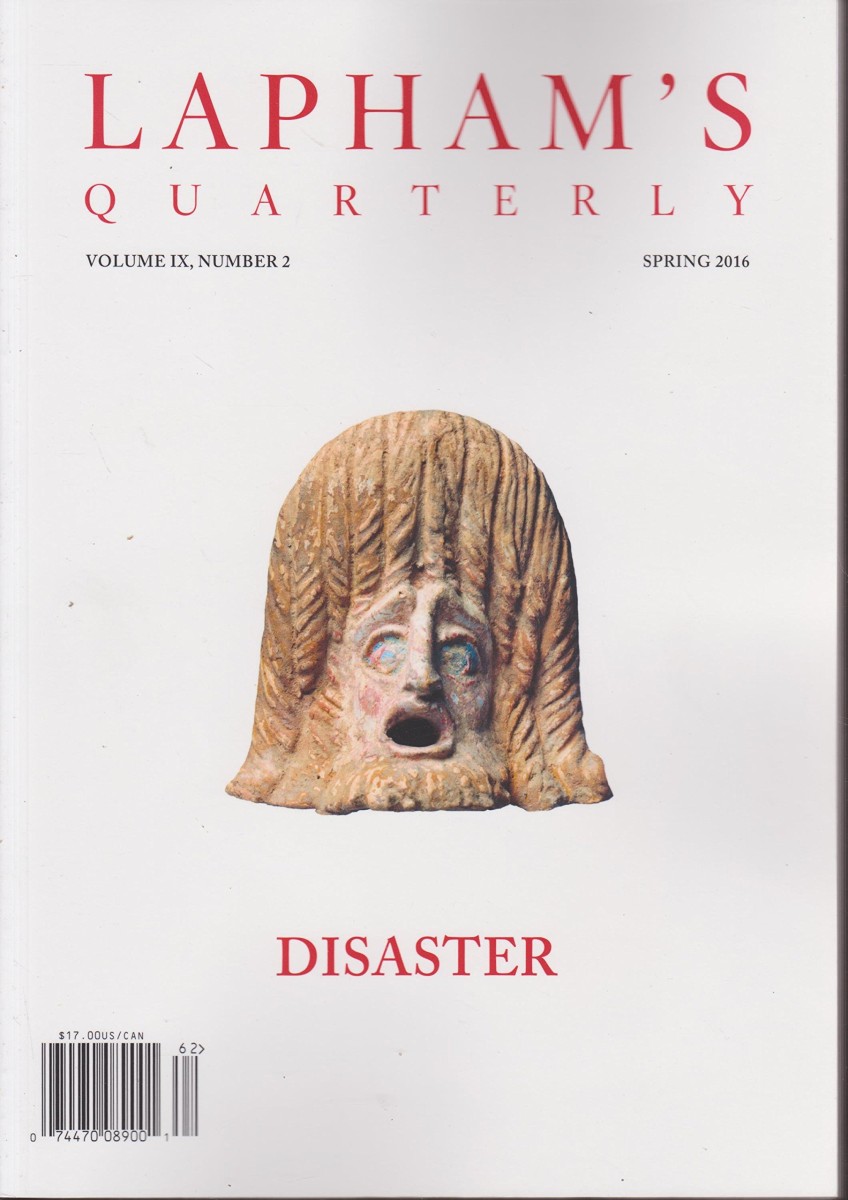This is an edition of Lapham’s Quarterly I read sometime in the last decade. It was after I started highlighting passages in books I was reading but before I started recording those highlights here. I’m finally getting around to adding those highlights.
Man is so opinionated that he sees only himself as the object of God’s activities, just as if the latter had only him to take account of in devising the appropriate measures for the ruling of the world. We know that the whole essence of nature is a worthy object of divine wisdom and its activities. We are a part of this and try to be all of it. – Immanuel Kant from “On the Causes of Earth quakes on the Occasion of the Calamity that Befell the Western Countries of Europe Toward the End of Last Year.
Wonderful quote, especially when we try to ponder that our universe may not only be infinite but only one of an infinite number of universes. Our brains are still too primitive to grasp the scale of our own universe let alone this idea of “infinite.” Our current religions, which are still very young in comparison with the universe were born in a time when we thought we were located in the center of the universe and the planets and stars were Gods traversing the sky. For some time religion persecuted and killed anyone who mentioned otherwise.
One can easily understand the veracity of this quote by simply listening to the words of a regular mass. How many times will the priest say to God that “We know you will do this, and we ask you to do that……” I think God would get very tired listening to all these expectations and requests day in and day out from a very primitive species on a very insignificant planet in an infinite universe.
The world is a comedy to those that think, a tragedy to those that feel. – Horace Walpole, 1776
Endless wars, millions killed, destroying the planet through pollution. If everyone truly ‘felt’ then we should probably be in a state of constant mourning given the injustice, greed, damage and death that occur on this planet daily. For those that think about it, I would say it is ‘comically tragic.’ One can’t help but laugh with all the absurdity.
You said: I’ll go to some other land, I’ll go to some other sea
There’s bound to be another city that’s better by far.
My every effort has been ill-fated from the start;
my heart – like something dead – lies buried away;
How long will my mind endure this slow decay?
Wherever I look, wherever I cast my eyes,
I see all around me the black rubble of my life
where I’ve spent so many ruined and wasted years.”
You’ll find no new places, you won’t find other shores.
The city will follow you. The streets in which you pace
will be the same, you’ll haunt the same familiar places,
and inside those same houses you’ll grow old.
You’ll always end up in this city. Don’t bother to hope
for a ship, a route, to take you somewhere else; they don’t exist.
Just as you’ve destroyed your life, here in this
small corner, so you’ve wasted it through all the world.
– CP. Cavafy, “The City.”
I had to read this quote a couple of times and came to the conclusion that it is of a person who would like to escape their own life, and dreams of doing so but will never have the courage to do so.
Secondly, it is easy to change your surroundings but not yourself. One could find themselves in a new city easily enough but it is not so easy to change yourself. Those that are miserable in one town will be miserable soon enough an a new town.
One is the behavior of the minority in power, who often act savagely in a disaster. The other is the beliefs and representations of the media, the people who hold up a distorting mirror to us in which it is almost impossible to recognize these paradises and our possibilities. Beliefs matter, and the overlapping beliefs of the media and the elites can become a second wave of disaster – as they did most dramatically in the aftermath of Hurricane Katrina ……
This social desire and social possibility go against the grain of the dominant stories of recent decades. You can read recent history as a history of privatization not just of the economy but also of society, as marketing and media shore imagination more and more toward private life and private satisfaction, as citizens are redefined as consumers, as public participation falters and with it any sense of collective or individual political power, as even the language for public emotions and satisfactions withers. There is no money in what is aptly called free association: we are instead encouraged by media and advertising to fear each other and regard public life as a danger and a nuisance, to live in secured spaces, communicate by electronic means, and acquire our information from media rather than each other.
